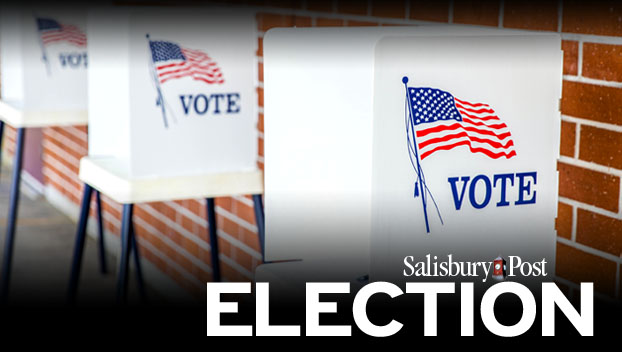Election 2021: Four candidates competing for three seats in town of Cleveland
Published 12:00 am Tuesday, October 19, 2021
CLEVELAND — In the 2021 town commissioners race, four candidates, all with experience in elected office, are seeking three seats.
Incumbents Bryan Little, Gerald Osborne and Richard Taylor face a challenge from Danny Gabriel, who was previously the town’s mayor. All are optimistic about business and residential growth in the town and the unincorporated areas immediately outside its boundaries.
The top three vote-getting candidates will receive a four-year term on the board. Mayor Pat Phifer will also be on this year’s ballot, but he doesn’t face any competition in the mayoral race.
Commissioner candidates spoke to the Post about their priorities and the future of the town in five and 10 years.
Gabriel, 65, works at Henkel in Salisbury, which manufactures adhesives as well as laundry, home care and beauty products. Gabriel says he’s hoping to get back on the town’s Board of Commissioners because he’s preparing to retire, has useful experience and is motivated by some of the positive energy in town, including a summer events schedule.
He’s concerned about and hopes to place the most attention on business growth in the town. He wants Cleveland to conduct a study of residents who live in a 5-mile radius and gather other useful facts to hand to prospective businesses. When land is available, Gabriel also suggested rezoning it to make it more appealing for development. Other top priorities, Gabriel said, includes fully funding Cleveland’s police and fire department.
In five and 10 years, Gabriel sees more housing developments outside of Cleveland’s town limits as well as new construction and new businesses in its boundaries. When the pandemic ends, Cleveland will have plenty of land, for businesses looking to expand, he said.
Little, 52, is a paramedic in Davie County who’s enjoyed working to shape the community after being appointed to fill Phifer’s term on the board. Little said the town has done a good job with economic growth and spending money appropriately.
Little wants to see Cleveland grow, saying it’s in “a prime spot for some industry,” but he said it should be managed.
“We have to have some control of it,” he said, adding that he likes living in a rural town.
He’s also conscious of the importance of maintaining infrastructure, including Cleveland’s water and sewer system. The town’s water tower will require replacing in the near future, for example, and that would involve working with engineers to find a spot that creates appropriate water pressure as well as pooling enough money to make the project.
Third, Little said, it’s important to focus on and do things to improve “the general welfare of the community.”
In five years, Little says Cleveland will have more industry because of its proximity to Interstates 40, 77 and 85. In 10 years, Cleveland will be more populated. The 2020 U.S. Census pegged its population at 846.
Gerald Osborne, 83, is a retired chemical engineer who’s trained his focus primarily on dealing with the town’s water and sewer system. Cleveland has three water wells and its own waste water treatment plant that serves the town.
“If you don’t have water and sewer, where’s the town?” he said. “It’s the basis of the town.”
Osborne said his second priority is listening for police department needs and funding them. Third, he said, is improving the streetscape — from regular maintenance to putting in decorative streetlights.
In five years, Osborne said, the town may need to increase the size of its waste treatment plant because of growth.
In 10 years, he’s looking forward to more street lights and physical activity, including a larger number of people going for walks on sidewalks. The new West Rowan Elementary School, library branch, EMS station and fire station prompted town leaders to think about other improvements they need to make.
Richard Taylor, 63, is a retired educator who now operates a small business called Cleveland Classics. Taylor said he enjoys serving on the board and wants to continue progress on ongoing projects.
The town’s No. 1 priority, Taylor said, is providing residents with a municipal water and sewer system. The town is lucky, he said, because the system is self-sufficient unless major repairs or replacements are needed.
“If we don’t have that, we have a mess, literally,” he said about the water and sewer system.
His No. 2 priority is regular maintenance, including paving roads.
“It’s kind of like running your house, just a much bigger system,” he said.
Taylor also said it’s time for the town to get serious about water tower conversations and explore possibilities for a replacement. He expects the town to have a new water tower within five years.
Taylor said he also hopes to see improvements to the town’s park off of Clement Street in five years.
In 10 years, Taylor focused on possibilities for industrial development, saying the former Fiber Industries or DuraFiber facility could be filled by then. The building is outside of the town’s limits on Statesville Boulevard. It’s proximity to Cleveland could have an impact on the town.
He’s also hopeful there will still be rural spaces around the town and a few tractors on the roads.
“I hope there’s still some farmland around, too,” Taylor said. “I do enjoy getting behind a tractor on the road.”




